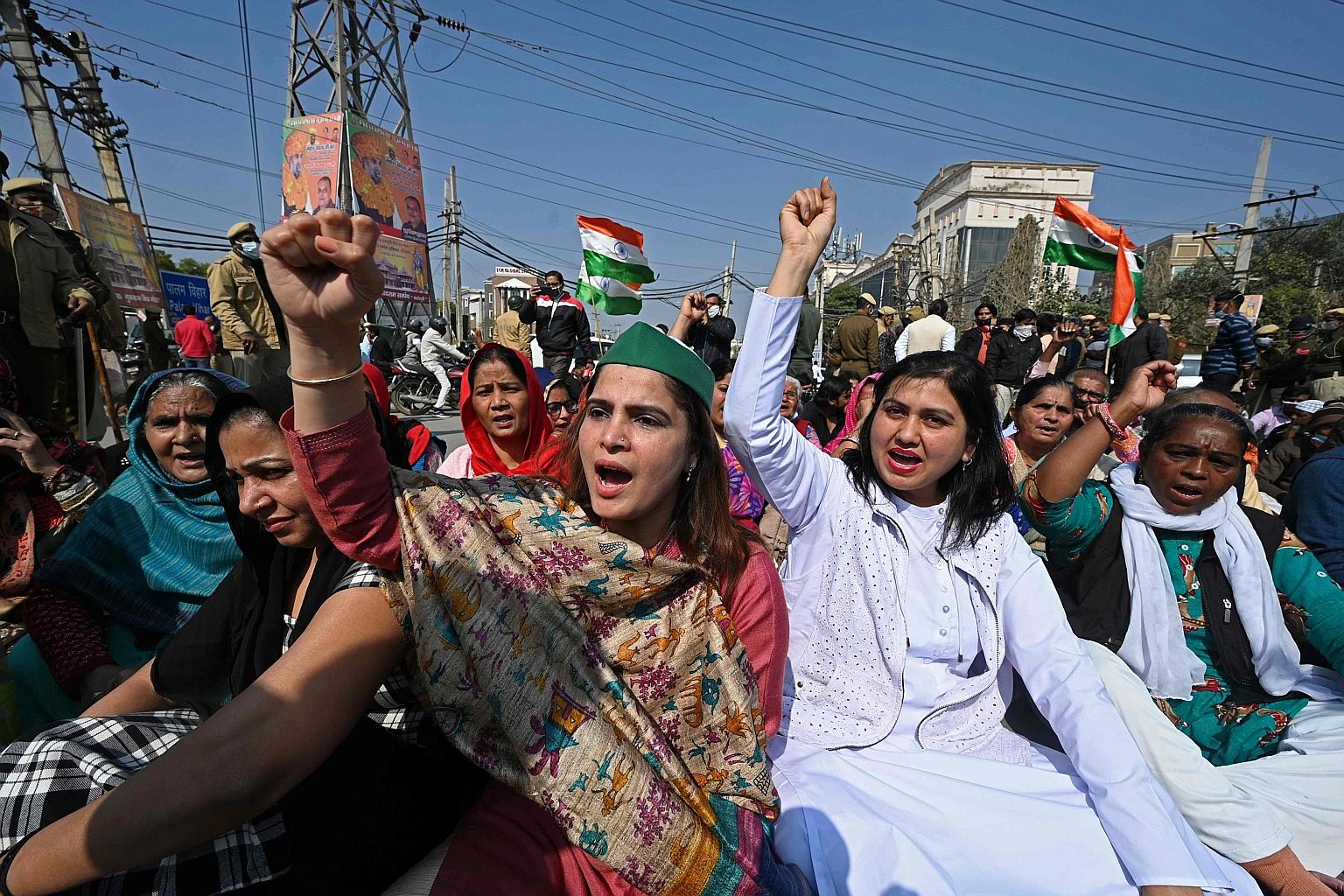Indian farmers want govt to end shutdown of Internet, phone lines
Sign up now: Get insights on Asia's fast-moving developments

A roadblock protest called by farmers in Gurgaon, India, yesterday, as part of ongoing demonstrations against the central government's recent agricultural reforms. Backed by a growing international campaign of celebrities and activists, farmers on Friday called for an immediate reinstatement of telecommunications services that were disrupted at protest sites outside the capital.
PHOTO: AGENCE FRANCE-PRESSE
NEW DELHI • Thousands of Indian farmers called on Prime Minister Narendra Modi's government to lift its blackout on phone and Internet services ahead of a push to block roads across the country yesterday to escalate protests now in their fourth month.
The farmers, backed by a growing global campaign of celebrities and activists such as Rihanna and Greta Thunberg, on Friday called for an "immediate reinstatement" of telecommunications services that were disrupted at protest sites outside the capital.
"The government's efforts to suppress the voice of disagreement continue," the farmer unions said.
India restricted Internet use more than any nation last year and suffered the highest economic cost as a result, according to a report by Top10VPN.com, which reviews virtual private networks.
The authorities have resorted to Internet shutdowns to stem protests in recent years, including nationwide rallies over a discriminatory citizenship law and after Delhi revoked the special autonomous status of Kashmir, the country's only Muslim-majority region.
"Time and again government authorities use times of political unrest to monopolise their control over information," said Ms Allie Funk, a New York-based senior research analyst at Freedom House.
"That the world's largest democracy can carry out such sweeping abrogations with little or no pushback from other countries has just allowed the curbs to be normalised."
India's government has toughened its stance against the protesters after violent clashes broke out last month: The authorities fortified Delhi's borders with concrete barricades, concertina wire and long metal spikes at key protest sites in addition to cutting water, phone and Internet services.
Meanwhile, Twitter's refusal to comply with an Indian government directive to block more than 250 accounts and posts has put the social media giant at the centre of a political firestorm in one of its key markets. Government officials, business people and ordinary netizens are split over free speech and Twitter's compliance practices.
The showdown, after the firm last week "declined to abide (by) and obey" the order to remove posts and accounts that the government said risked inciting violence, is the latest instance of worsening relationships between Mr Modi's administration and US social media platforms such as Facebook and WhatsApp.
For Twitter, the stakes are high in a country of 1.3 billion, where it has millions of users and is ardently used by Mr Modi, his Cabinet ministers and other leaders to communicate with the public.
BLOOMBERG, REUTERS


